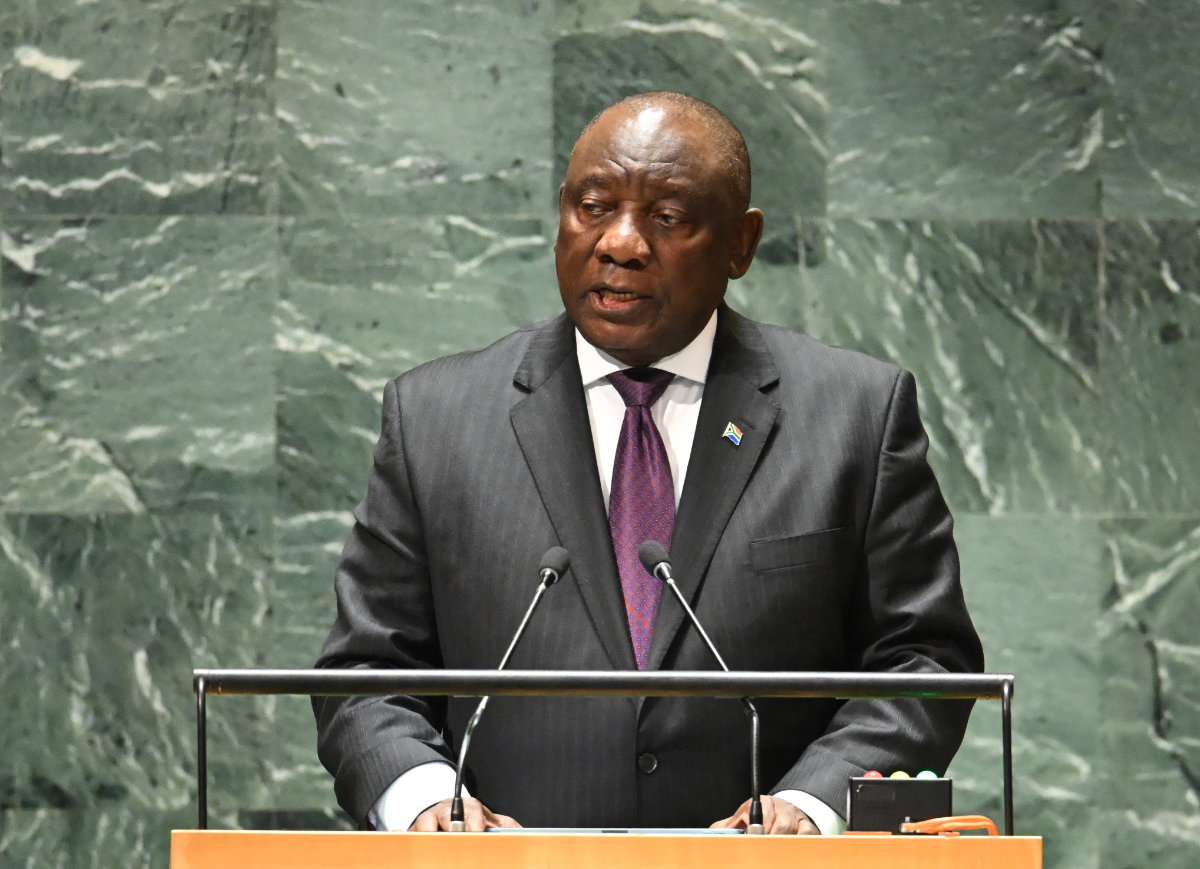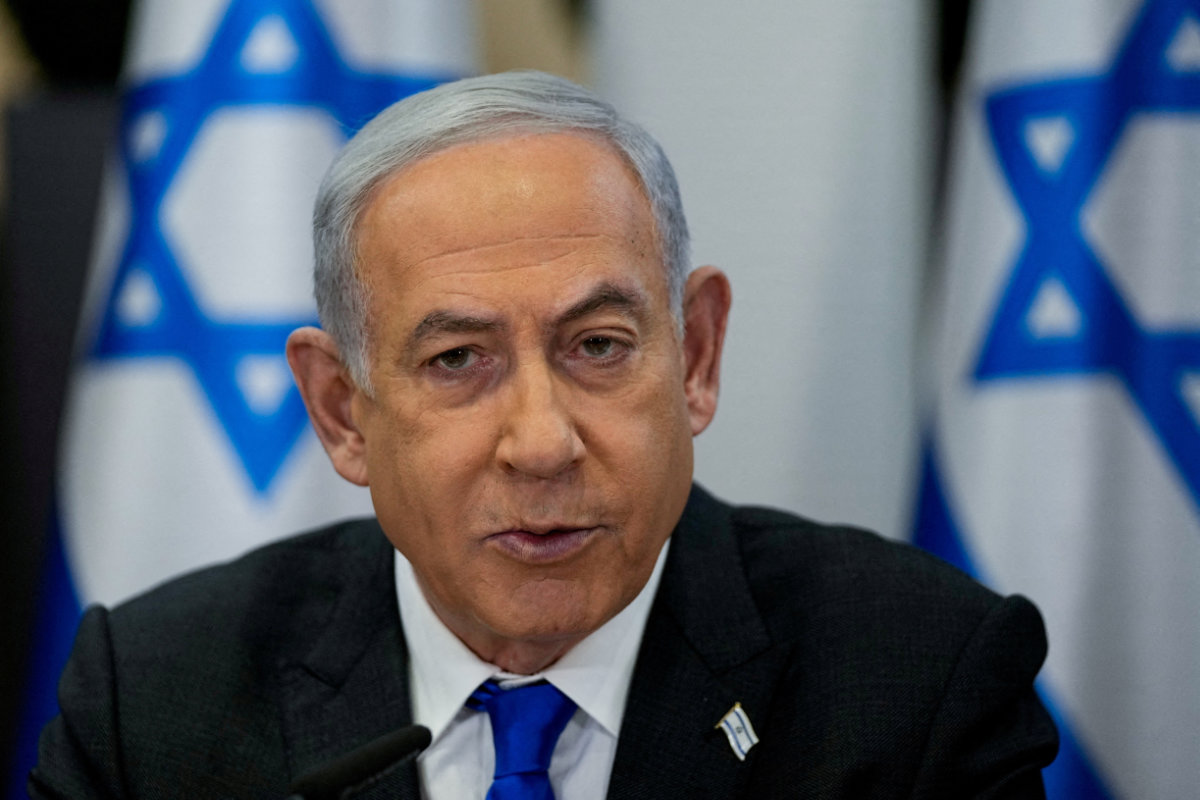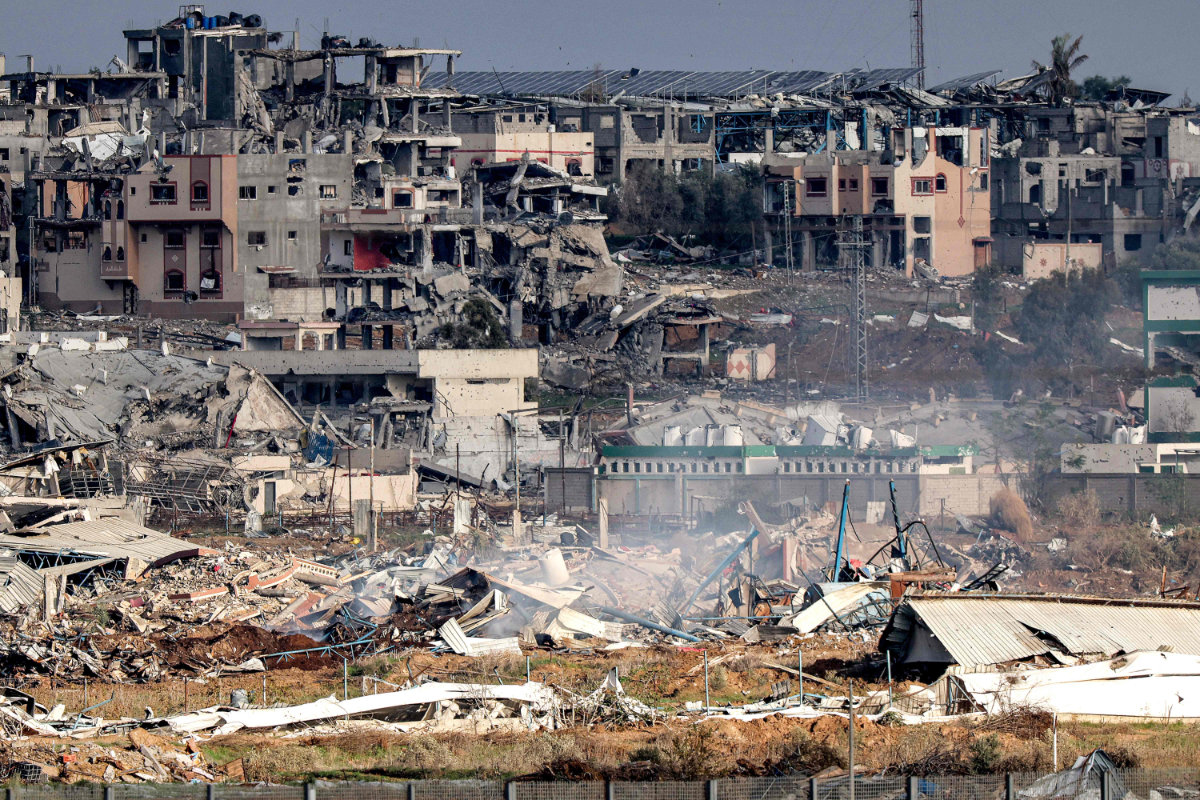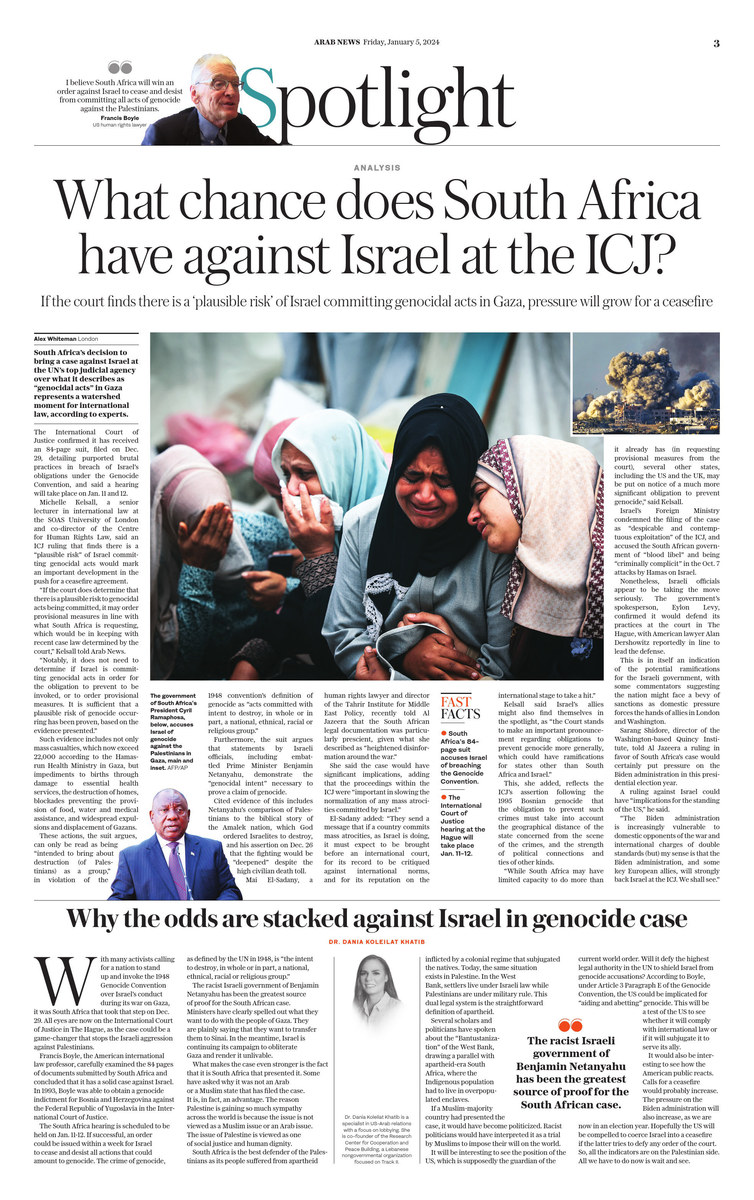LONDON: South Africa’s decision to bring a case against Israel at the UN’s top judicial agency over what it describes as “genocidal acts” in Gaza represents a watershed moment for international law, according to experts.
The International Court of Justice confirmed it has received an 84-page suit, filed on Dec. 29, detailing purported brutal practices in breach of Israel’s obligations under the Genocide Convention, and said a hearing will take place on Jan. 11 and 12.
Michelle Kelsall, a senior lecturer in international law at the SOAS University of London and co-director of the Centre for Human Rights Law, said an ICJ ruling that finds there is a “plausible risk” of Israel committing genocidal acts would mark an important development in the push for a ceasefire agreement.

South African President Cyril Ramaphosa, shown in this September 19, 2023, photo at the UN General Assembly, has accused Israel ofthe crime of genocide against Palestinians in Gaza. (AFP)
“If the court does determine that there is a plausible risk to genocidal acts being committed, it may order provisional measures in line with what South Africa is requesting, which would be in keeping with recent case law determined by the court,” Kelsall told Arab News.
“Notably, it does not need to determine if Israel is committing genocidal acts in order for the obligation to prevent to be invoked, or to order provisional measures. It is sufficient that a plausible risk of genocide occurring has been proven, based on the evidence presented.”
Such evidence includes not only mass casualties, which now exceed 22,000 according to the Hamas-run health ministry in Gaza, but impediments to births through damage to essential health services, the destruction of homes, blockades preventing the provision of food, water and medical assistance, and widespread expulsions and displacement of Gazans.
Opinion
This section contains relevant reference points, placed in (Opinion field)
These actions, the suit argues, can only be read as being “intended to bring about destruction (of Palestinians) as a group,” in violation of the 1948 convention’s definition of genocide as “acts committed with intent to destroy, in whole or in part, a national, ethnical, racial or religious group.”
Furthermore, the suit argues that statements by Israeli officials, including embattled Prime Minister Benjamin Netanyahu, demonstrate the “genocidal intent” necessary to prove a claim of genocide.
Cited evidence of this includes Netanyahu’s comparison of Palestinians to the biblical story of the Amalek nation, which God ordered Israelites to destroy, and his assertion on Dec. 26 that the fighting would be “deepened” despite the high civilian death toll.

In a sign of utter disregard of Palestinian lives, Israeli Prime Minister Benjamin Netanyahu has warned that the offensive in Gaza would be “deepened” despite the high civilian death toll. (Pool photo via Reuters/File)
Mai El-Sadany, a human rights lawyer and director of the Tahrir Institute for Middle East Policy, recently told Al Jazeera that the South African legal documentation was particularly prescient, given what she described as “heightened disinformation around the war.”
She said the case would have significant implications, adding that the proceedings within the ICJ were “important in slowing the normalization of any mass atrocities committed by Israel.”
El-Sadany added: “They send a message that if a country commits mass atrocities, as Israel is doing, it must expect to be brought before an international court, for its record to be critiqued against international norms, and for its reputation on the international stage to take a hit.”
FASTFACTS
FASTFACTS South Africa’s 84-page suit accuses Israel of breaching the Genocide Convention.
The International Court of Justice hearing at the Hague will take place Jan. 11-12.
Kelsall said Israel’s allies might also find themselves in the spotlight, as “the Court stands to make an important pronouncement regarding obligations to prevent genocide more generally, which could have ramifications for states other than South Africa and Israel.”
This, she added, reflects the ICJ’s assertion following the 1995 Bosnian genocide that the obligation to prevent such crimes must take into account the geographical distance of the state concerned from the scene of the crimes, and the strength of political connections and ties of other kinds.
“While South Africa may have limited capacity to do more than it already has (in requesting provisional measures from the court), several other states, including the US and the UK, may be put on notice of a much more significant obligation to prevent genocide,” said Kelsall.

This picture taken on January 3, 2024 shows a view of buildings destroyed by Israeli bombardment in the central Gaza Strip amid the ongoing conflict between Israel and the Palestinian militant group Hamas. (AFP)
Israel’s Foreign Ministry condemned the filing of the case as “despicable and contemptuous exploitation” of the ICJ, and accused the South African government of “blood libel” and being “criminally complicit” in the Oct. 7 attacks by Hamas on Israel.
Nonetheless, Israeli officials appear to be taking the move seriously. The government’s spokesperson, Eylon Levy, confirmed it would defend its practices at the court in The Hague, with American lawyer Alan Dershowitz reportedly in line to lead the defense.
This is in itself an indication of the potential ramifications for the Israeli government, with some commentators suggesting the nation might face a bevy of sanctions as domestic pressure forces the hands of allies in London and Washington.
Sarang Shidore, director of the Washington-based Quincy Institute, told Al Jazeera a ruling in favor of South Africa’s case would certainly put pressure on the Biden administration in this presidential election year.
A ruling against Israel could have “implications for the standing of the US,” he said.
“The Biden administration is increasingly vulnerable to domestic opponents of the war and international charges of double standards (but) my sense is that the Biden administration, and some key European allies, will strongly back Israel at the ICJ. We shall see.”






























